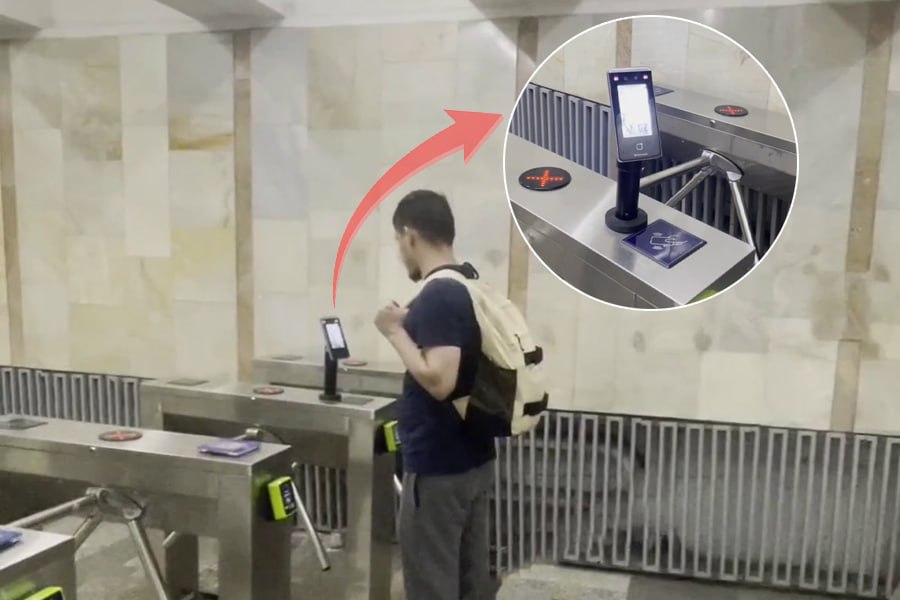Tashkent metro testing fare payment via Face ID
At the “Buyuk Ipak Yuli” metro station, a modern fare payment technology is being tested – a device that recognizes the faces of passengers. With its help, passengers pay without using paper tickets, ATTO or bank cards.

Photo: Frame from the video
Face ID devices appeared at the “Buyuk Ipak Yuli” station of Tashkent metro. The capital’s metro told Kun.uz that this is the FacePay system, with which one can identify the faces of passengers and pay remotely. That is, metro users can pass through the turnstile using Face ID without using paper tickets, ATTO or bank cards.
This practice has so far been implemented by ATTO (Automated Toll Collection Operator) only at this station. If the trial is successful, it is expected that the new form of payment will be introduced at other metro stations.
Kun.uz contacted ATTO to figure out how the device works. Deputy head of the system Abdugofur Nurmatov said that in order for Face ID to work, information about passengers’ faces must first be entered into the device’s database. To do this, the passenger needs to scan his face by logging into the special ATTO application and activating the corresponding function.
In the right corner of the application panel, there is a FacePay button showing the balance of the transport card, click this button and the passenger’s face will be photographed. After this, you will see information that his photo has been added to the database and the system has been activated.
Then, if you have money on your ATTO transport card, you can make a payment via Face ID. It is noted that the launch of this system is taking place in collaboration with the Russian company VisionLabs, using its devices.
According to the ATTO deputy head, the FacePay system is used in public transport in many foreign countries, and now a similar practice is being introduced in Uzbekistan.
Also, according to him, “face payment” works on both iOS devices and Android gadgets.
It should be recalled that the FacePay system was previously introduced at this very station of Tashkent metro. But the devices were later removed. According to the ATTO head, the experiment failed then.




